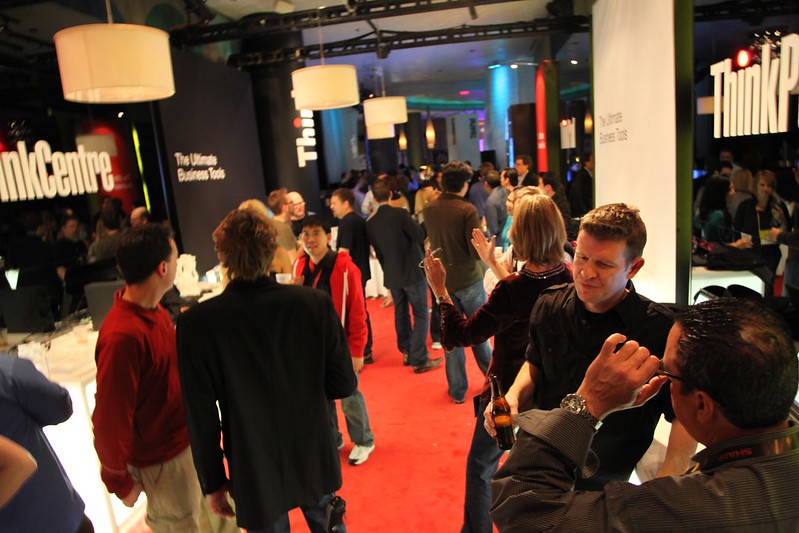How You Use Social Tools is Up To You
There are many different ways each use our social tools, sometimes we share similar behaviours with similar outcomes desired, but oftentimes we can use the same tools in very different ways, for different outcomes and with different intentions. Recently there has been a lot of talk about how everyone should follow everyone else who follows them on Twitter. That it was a courtesy – a sign of social respect, that we are all peers etc…
I disagree for many reasons, some of which I discuss with Neville Hobson on this hastily made podcast we did over Skype between London and San Francisco this morning. In this 17 minute conversation about the reasons we don’t (or more accurately I should say, can’t) possibly follow everyone.
if the topic is of interest to you, please do listen in on our discussion about why it is not necessary for you to follow everyone who follows you. It is a wonderful symbolic gesture, but ultimately the equality should be in the respect we have for allowing each other to use the tools as we see fit for our own personal reasons – to prescribe how someone else MUST use Twitter is not appropriate.
Ultimately, whether or not you follow everyone who follows you is a trade off between two different priorities. You can receive signals that have greater value/meaning and thereby maximize your return on time invested in the Tweetstream; or you can follow everyone who follows you and reap the benefits of the ever expanding network effect. In that many of the people I know with exceptionally high followers have great difficulty being genuinely involved in the larger conversation regularly, and/or set up tools that let them privately filter it down to the inbound @username search feed and a group of people who they really are interested in listening too.
Point being, use it as you see fit, just don’t hurt anyone. If you run into spammers, block them. If people are unknowingly misusing the service you might be able to help them use it more effectively – help them find their real personality and join the conversation. Or do nothing. Even though it may suck that people are out there doing things we think are inappropriate, as long as its not causing direct harm to us or others, why does it matter that I am not able to follow everyone who follows me?
After all, as I have been saying, humans really don’t scale – our time and our attention and our energy are our most valuable resources.
Mobile post sent by chrisheuer using Utterli. Replies. mp3
![Reblog this post [with Zemanta]](http://img.zemanta.com/reblog_e.png?x-id=07a9ae51-3e3c-49bb-bef2-8c9ec4392abb)





JoeDuck / January 31st, 2009 22:03
Thanks to you and Chris for opening a timely and interesting conversation on this topic even though we are in disagreement about some of this – what I think I’ll be blogging soon as “Twitter elitism”. Along these lines I’ve also been calling for a “blogging revolution” in the same vein to avoid the growing challenge of A list bloggers “sticking together”, esp. with respect to linking, which has too often confined the conversations too narrowly. I’m hoping this “A list” problem will be self correcting without a revolution because I’m too lazy to lead that anyway.
Although I agree that nobody should dictate how others use social media, I’m definitely in what one might call the Scoble camp of “massive friending” because I think that approach is the most consistent with the new social media sensibilities and against what I see as a *huge* growing threat to blogging which is the old type of legacy media elitism where a limited number of influential voices define the conversations. More than anything I want new media to do something old media could not do – open the conversation to everybody and expose everybody to new perspectives and ideas.
I’m obviously not recommending folks friend somebody who is marketing to them in ways they don’t like or abusive or other annoying things, but I guess I am suggesting that a very cool aspect of Twitter is the ability to get a sense of the pulse of a smart community as it swirls on the web – without following a lot of people you lose out on this intriguing aspect of Twitter although I supposed you could spend time at the “public” timeline for that. However as I moved from following small to large numbers I found there was also a neat aspect of feeling part of a very positive community experience.
I should caveat this with the fact that a lot of the current growth in Twitter seems to be in the PR and Marketing sectors. To the extent folks are only friends so they can pitch MLM schemes the massive friending may break down but I think we’ll find that problem regulates itself as “selfish” users will lose friends or those communities will simply spin up among each other.